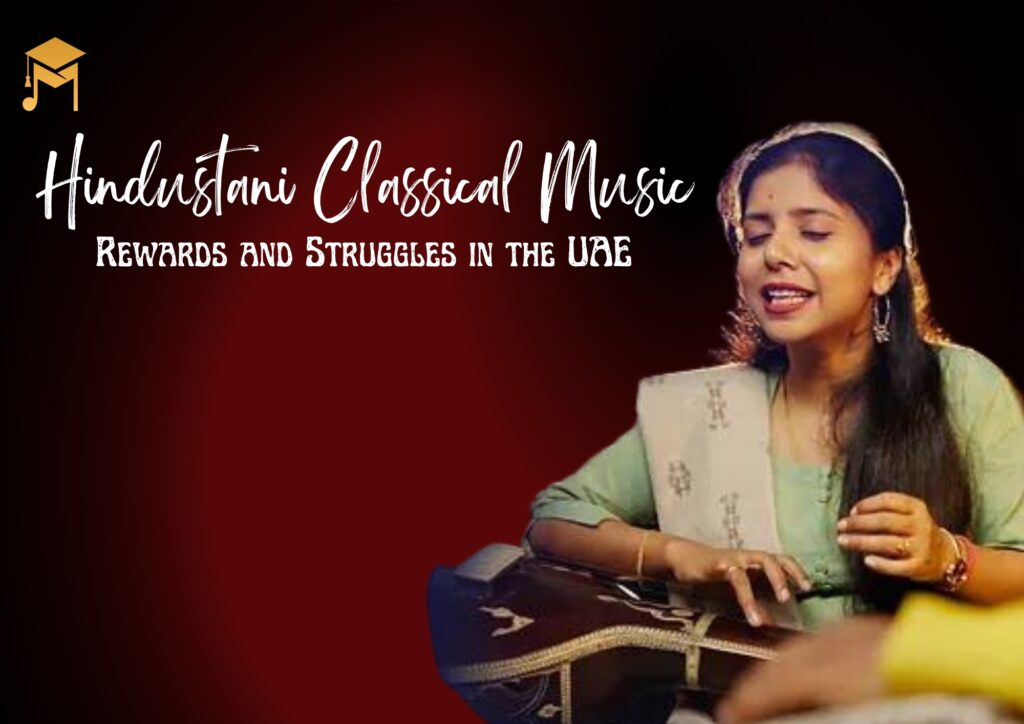Hindustani Classical Music | Rewards and Struggles in the UAE
The UAE, with its vibrant multicultural community, has become a hub for various artistic expressions, including music. Among these, Hindustani classical music is gaining traction. However, learning this intricate art form in a foreign land comes with its own set of challenges and rewards. For those eager to explore this tradition in the UAE, the journey offers both hurdles to overcome and moments of deep musical satisfaction.
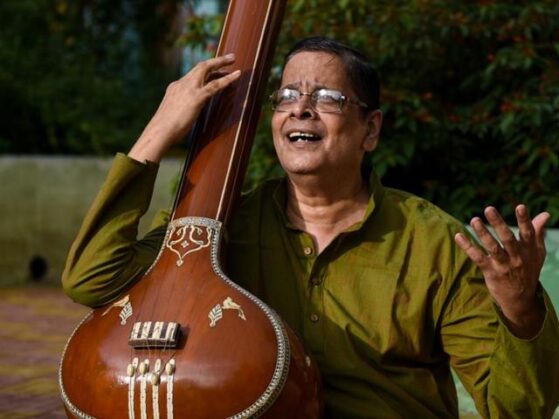
Challenges of Learning Hindustani Classical Music in the UAE
Cultural Context and Exposure
Hindustani classical music is deeply rooted in Indian culture and tradition. In the UAE, where the predominant cultural context differs, students might find it challenging to connect with the music’s historical and cultural nuances. Understanding the context in which ragas and talas were developed is crucial for a deeper appreciation and mastery of the music.
Access to Qualified Teachers
Finding experienced and qualified Hindustani music teachers can be challenging in the UAE. While there are talented musicians in the region, the scarcity of dedicated classical music teachers means that students may have limited access to personalized guidance and authentic instruction, which can hinder their progress. Here, we have designed an effective solution. The Mystic Keys offers one-on-one online lessons with highly qualified Hindustani music trainers, ensuring that students receive the expert instruction they need from the comfort of their own homes.
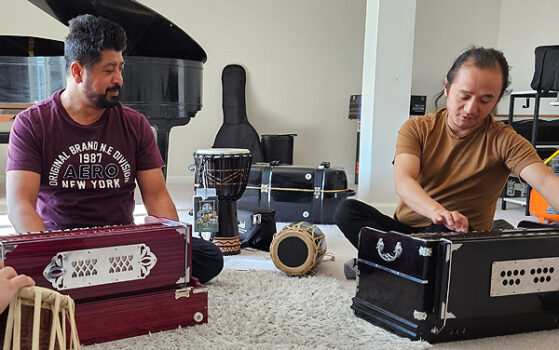
Lack of Local Infrastructure
Hindustani classical music education often requires specific infrastructure, such as instruments like the sitar, tabla, or harmonium. In the UAE, acquiring and maintaining these traditional instruments might be difficult due to their limited availability and the high cost associated with them.
Cultural Misconceptions
There may be misconceptions about Hindustani classical music, often viewed as overly complex or niche. These misconceptions can discourage potential learners or lead to misunderstandings about the depth and versatility of the music. Bridging this gap requires educating the public and fostering an environment that appreciates diverse musical traditions.
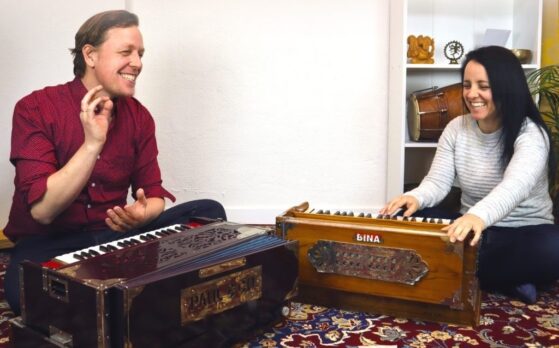
Commitment and Discipline
Mastery of Hindustani classical music demands significant time, patience, and dedication. The intricate nature of ragas and talas, combined with the need for consistent practice, can be daunting for beginners, especially those balancing other commitments such as work or study.
Rewards of Learning Hindustani Classical Music in the UAE
Cultural Enrichment and Understanding
Learning Hindustani classical music provides a profound insight into Indian culture and philosophy. It enriches students’ understanding of a tradition that has been shaping Indian music for centuries. This cultural exchange not only broadens one’s musical perspective but also fosters greater appreciation and respect for different cultures.
Development of Musical Skills
Hindustani classical music is known for its sophisticated techniques and expressive potential. Students develop a strong sense of rhythm, pitch, and improvisation skills. The rigorous training involved enhances their overall musicality and provides a solid foundation for exploring other musical genres.
Emotional and Psychological Benefits
The practice of Hindustani classical music has therapeutic benefits. The meditative aspects of ragas, designed to evoke specific emotions and states of mind, can contribute to emotional well-being. The music’s intricate patterns and improvisational elements encourage mindfulness and focus, promoting mental clarity and emotional balance.
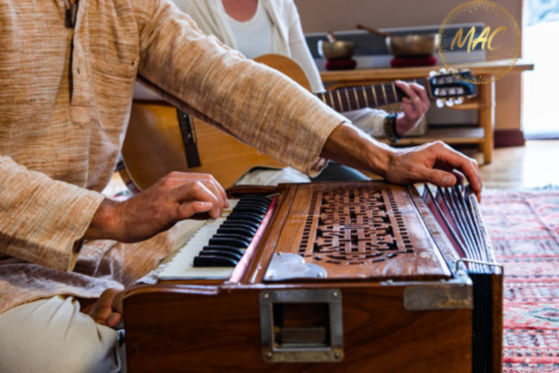
Community and Networking Opportunities
The growing interest in Hindustani classical music in the UAE has led to the formation of communities and networks of like-minded individuals. Students can connect with fellow learners, attend workshops, and participate in performances, enriching their experience and building valuable relationships within the music community.
Personal Fulfillment and Achievement
Overcoming the challenges of learning Hindustani classical music leads to a deep sense of personal achievement. The ability to perform complex compositions and improvisations, coupled with the appreciation of the music’s beauty, provides a fulfilling and rewarding experience. This journey of self-discovery and mastery is immensely gratifying.
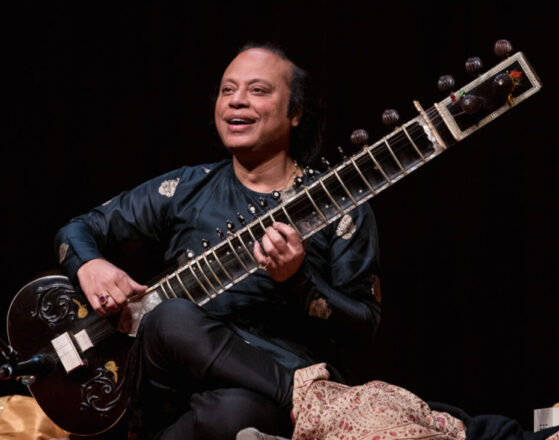
Conclusion
Learning Hindustani classical music in the UAE is a journey filled with both challenges and rewards. While students may face obstacles such as cultural context, access to teachers, and infrastructure, the benefits of cultural enrichment, musical development, emotional well-being, and personal fulfillment make the journey worthwhile. Embracing these challenges with perseverance and passion can lead to a rewarding experience that bridges cultures and deepens one’s connection to a timeless musical tradition.


